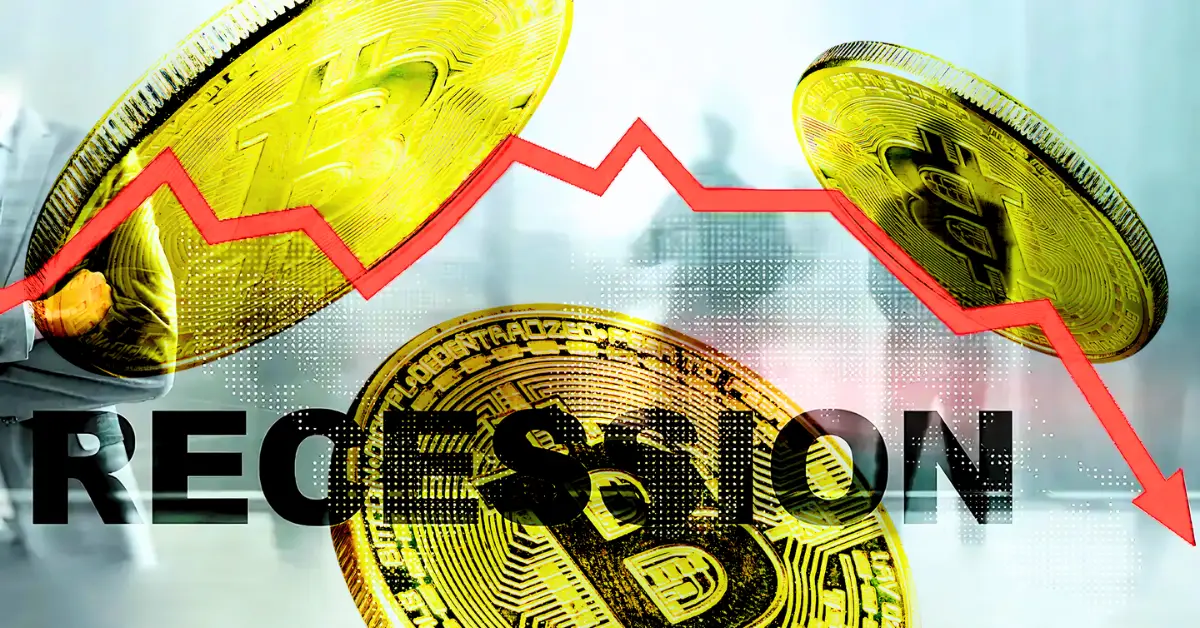
Bitcoin is under serious pressure as global recession fears, high interest rates, and growing tariff tensions shake investor confidence. While interest in the crypto market remains steady, Bitcoin is struggling to push higher and is hovering just below the key $85,000 level.
At the time of writing, Bitcoin is trading around $84,596 — down slightly in the past 24 hours and nearly 22% below its all-time high of over $109,000. The excitement from earlier this year is fading, and some analysts are starting to sound the alarm. Could we be heading toward another major crash?
A closer look at expert insights reveals some surprising possibilities.
In a recent Altcoin Daily podcast, Bloomberg Intelligence’s Mike McGlone, trader Scott Melker, and market analyst Gareth Soloway discussed where Bitcoin might be headed — and some of their views were concerning.
Mike McGlone, a senior commodity strategist at Bloomberg, warned that Bitcoin could crash to $10,000 if the overall economic outlook worsens — especially if the S&P 500 drops sharply to around 4,000 points.
McGlone said the global economy is showing signs of deflation, with key indicators flashing red. The U.S. stock market is now trading far above GDP levels, and the S&P 500 is no longer moving in sync with global markets — a pattern also seen before the market crashes in the U.S. (1929) and Japan (1989).
Slow economic growth, weaker trade caused by tariffs, and falling prices in oil and Chinese bonds are all adding to the pressure.
Bitcoin and Risk Assets No Longer Aligned
McGlone also pointed out that Bitcoin is no longer moving closely with stocks and other risk assets like it used to. While gold prices are rising, both Bitcoin and equities are struggling. Investors are beginning to realize that crypto ETFs behave more like high-risk assets than safe havens.
Another warning sign: the gold-to-silver ratio has climbed above 100 — a level often seen before recessions — which is adding to the cautious mood in the markets.
If the S&P 500 does fall to 4,000, McGlone believes Bitcoin could return to its pre-pandemic average of around $10,000. That price also matches its 200-week exponential moving average and its long-term fair value range.
He also mentioned Bloomberg’s proprietary Bitcoin Driver Index, which currently suggests Bitcoin’s fair value could be below $17,000 based on current fundamentals.
Looking at the Bright Side
Not everyone agrees with the bearish view. An Altcoin Daily analyst shared a more optimistic perspective. While they admit a drop to $20k is possible in a deep recession, they also noted that Bitcoin has shown strength during recent corrections. Despite a 10% fall in the S&P, Bitcoin hasn’t retested previous highs — a sign of resilience.
With global liquidity at an all-time high — thanks to rate cuts and quantitative easing outside the U.S. — the analyst believes a major collapse is less likely. Unless Bitcoin breaks clearly below $69,000, they don’t expect new lows anytime soon.
Bitcoin’s future depends on macroeconomic factors. While volatility remains, its potential growth, especially with inflation fears, makes it a worthy consideration.
There is no verified information about how much Bitcoin Donald Trump owns. He has not publicly disclosed any significant Bitcoin investments.
Investing $500 in Bitcoin today could be worth $1,250-$7,500 by 2030, based on predictions of $200K-$1.5M per BTC. High risk, volatile market.
As per Coinpedia’s BTC price prediction, 1 BTC could peak at $168k this year if the bullish sentiment sustains.
As of now, one Bitcoin is worth approximately $84,925.12.
Michael Saylor has once again stirred excitement in the crypto space with a powerful post…
The Layer 1 market is still led by Ethereum, while newer projects like Ozak AI…
XRP holders have long been known for their loyalty, having weathered years of SEC battles…
President Trump is signaling major changes ahead for the Federal Reserve and U.S. trade policy.…
Solana investors are experiencing a significant decline in profits, as the SOL price dropped to…
As crypto markets enter a critical Q3 phase, investor behavior is starting to shift in…